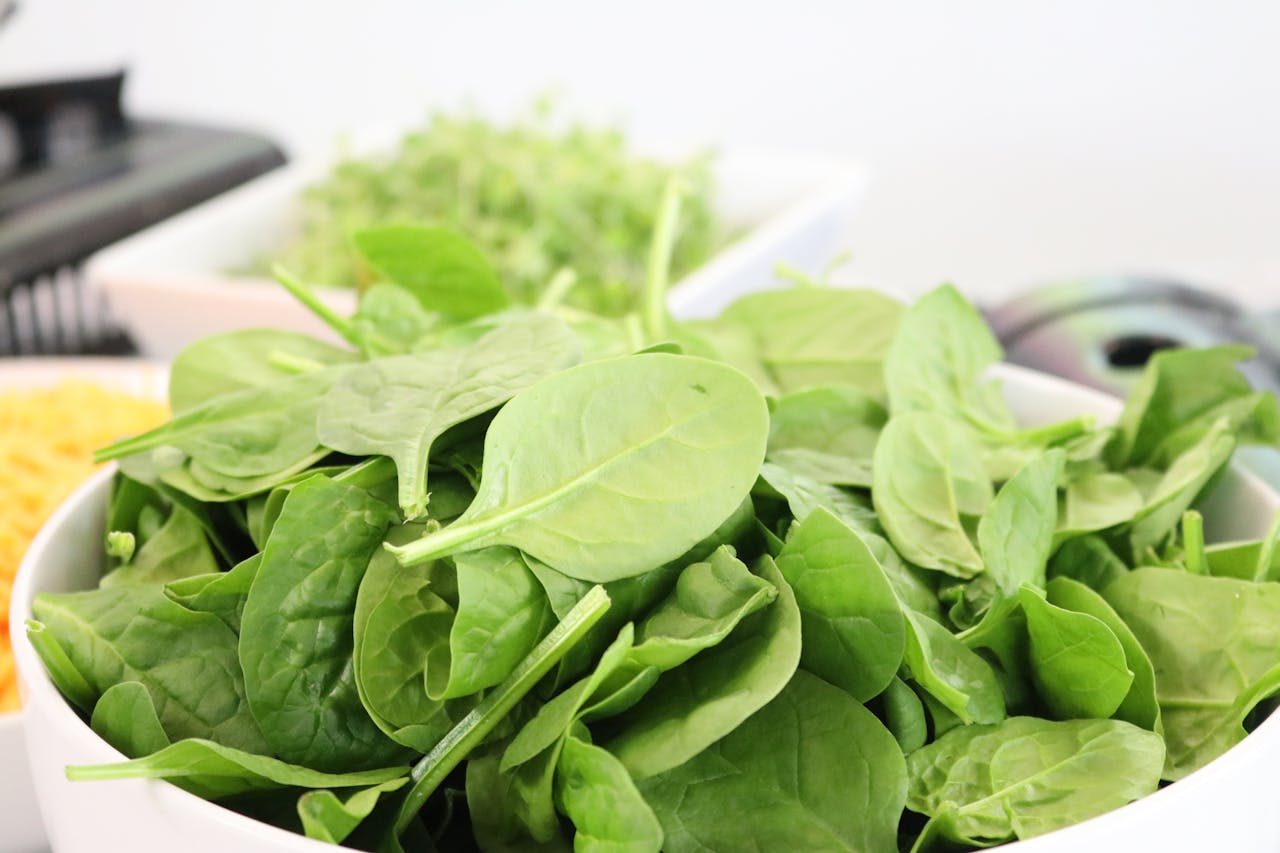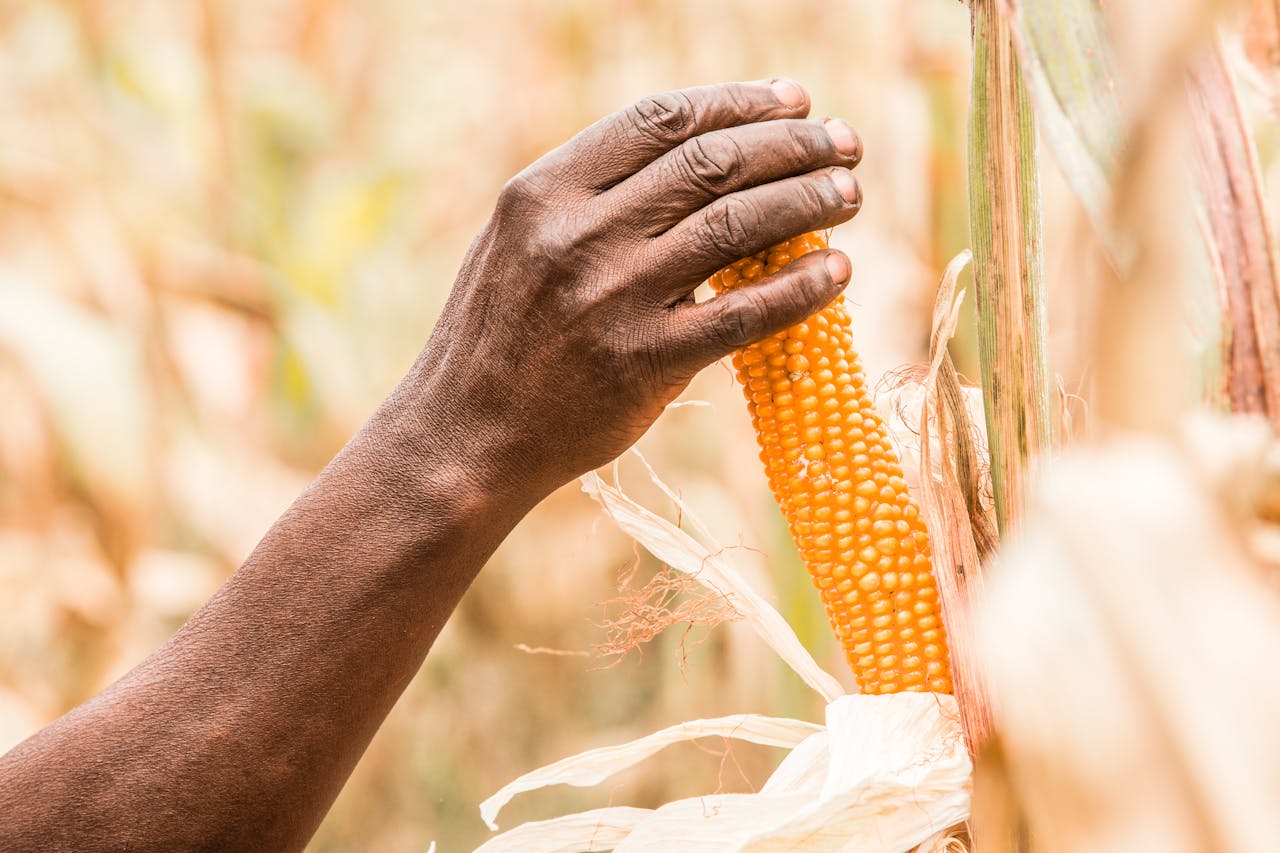Most Americans are undernourished. Recent studies show that ultra-processed foods, like fast food, chips, TV dinners, and candy, make up more than half of the Standard American Diet. These foods are typically high in calories but low in essential nutrients, which is why it’s important to also consume nutrient-dense options like fruits, vegetables, and other plant-based whole foods.
To give credit where it’s due, Americans are eating their greens at least some of the time. A 2024 YouGov study found that about 40 percent of US adults eat leafy greens or salad several times a week. But emerging research suggests that even vegetables may lose some of their nutritional benefits in the future.
In addition to fueling extreme weather events like floods, droughts, and heat waves, the climate crisis—driven in part by animal agriculture—could also reduce the nutrient density of key crops, posing another serious threat to public health.
Why the climate crisis might make vegetables less nutritious
At the Society for Experimental Biology Annual Conference in Antwerp, Belgium, researchers presented new findings on how rising temperatures and increasing levels of atmospheric carbon dioxide are making it harder for plants to grow in optimal conditions. These environmental stressors, the researchers suggest, could reduce the nutritional quality of crops.
“These environmental changes can affect everything from photosynthesis and growth rates to the way crops synthesize and store nutrients,” said Jiata Ugwah Ekele, a PhD student at Liverpool John Moores University in the UK, who led the research. The research specifically examined how leafy greens like kale, asparagus, and spinach respond in climate-controlled growth chambers.
 Pexels
Pexels
Ekele noted that while higher levels of carbon dioxide can cause plants to grow larger, that doesn’t mean they’re healthier to eat. “It’s crucial to understand these impacts because we are what we eat, and plants form the foundation of our food network as the primary producers of the ecosystem,” she explained.
“By studying these interactions, we can better predict how climate change will shape the nutritional landscape of our food and work toward mitigating those effects.”
Building a more climate-resilient food system
Ekele’s research adds to a growing body of evidence showing how climate change is reshaping our food system. Another recent study, published in the journal Science Advances, found that even one day of extreme heat can reduce cows’ milk production by as much as 10 percent.
“Climate change will have wide-ranging impacts on what we eat and drink, including that cold glass of milk,” said one of the study’s co-authors, Eyal Frank, an assistant professor at the Harris School of Public Policy.
He added: “Our study found that extreme heat leads to significant and lasting impacts on milk supply, and even the most high-tech, well-resourced farms are deploying adaptation strategies that may be an insufficient match to climate change.”
It’s important to note that animal agriculture, including dairy and meat production, is a major contributor to the climate crisis itself. In fact, a 2021 study published in the journal Sustainability found that animal agriculture contributes 16.5 percent of total greenhouse gas emissions.
 Pexels
Pexels
BECOME A VEGNEWS VIP: Get exclusive product deals, freebies, and perks galore!
Other research from NASA in 2021 warned that maize (corn) yields could decline by up to 24 percent within the next decade due to changing weather patterns. This is especially concerning because maize, alongside rice and wheat, is a dietary staple for billions, particularly in sub-Saharan Africa, where it helps feed more than 300 million people.
But there is some hope. Technology, like Clustered Regularly Interspaced Short Palindromic Repeats (widely known as CRISPR), might help scientists improve the resilience of crops by inserting them with DNA that makes them less vulnerable to extreme weather conditions. In 2023, a Singapore-based company called Singrow used CRISPR to make the first climate-resilient strawberry.
But Ekele’s research highlights that it’s not just about growing more plants, it’s also about preserving the nutrients they provide.
“It’s important to connect plant science with broader issues of human well-being. As the climate continues to change, we must think holistically about the kind of food system we’re building—one that not only produces enough food, but also promotes health, equity, and resilience,” she says.
“Food is more than just calories,” she added. “It’s a foundation for human development and climate adaptation.”
For more plant-based stories like this, read:
JUMP TO ... Latest News | Recipes | Guides | Health | Subscribe









